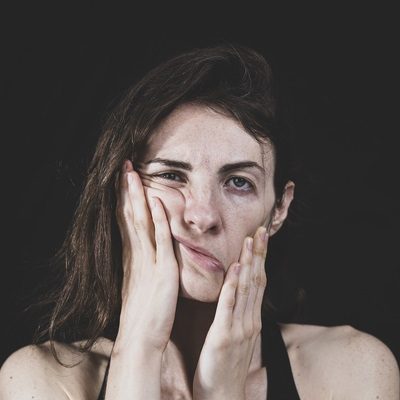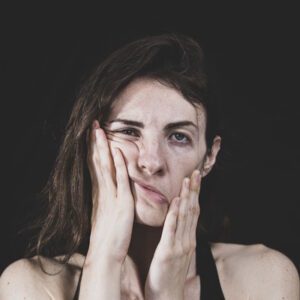April is Stress Awareness Month.
Stress is a major problem in the UK. According to the Stress Management Society (SMS), around 80% of people in the UK experience stress at some point in their lives. Stress can have a negative impact on physical and mental health, and can lead to a number of problems, such as anxiety, depression, and heart disease.
Stress Awareness Month was founded in 1992 by the Stress Management Society (SMS) and is now an annual event designed to raise awareness about the causes and cures of stress. The SMS itself was founded nearly 50 years ago in 1974 by a group of doctors, psychologists, and other professionals who were concerned about the growing problem of stress in the UK. The organisation’s mission is to
“Improve the quality of life of people in the UK by promoting stress management and healthy living”
During Stress Awareness Month activities include:
- Public events, such as talks, workshops, and seminars
- Media campaigns, such as TV and radio adverts
- Online resources, such as websites and e-books
Stress Awareness Month is an important opportunity to raise awareness about stress and its effects, to encourage open conversation about the issues and to learn how to manage stress in a healthy way.
The SMS says:
“Stress and poor mental health are one of the biggest public health challenges that we’re facing. Sadly, even though that is the case, we are still not taking its impact seriously enough. We continue to separate mental health from physical health and vice versa. The reality is they cannot be separate – they are two sides of the same coin. There is no health without mental health and stress can lead to numerous health problems. From physical problems, like heart disease, insomnia, digestive issues, immune system challenges, etc to more serious mental health disorders such as anxiety and depression.”
Stress Awareness Month Resources
- Online stress test
- 30 day challenge – a daily action for your Physical, Mental and Emotional Wellbeing
- More information and resources
How can Clinicbe help with stress?
If you’re suffering from the effects of stress, there are a number of ways in which we can help.
1/ Health checks and supplements
If there are vitamin and mineral imbalances in your body, this can make you feel more stressed or susceptible to the pressures caused by daily life.
A simple health screening using OligoScan Advanced Cellular Testing can provide detailed information and a real insight as to your physical health, which can have a bearing on mental health too. The test requires no blood sample as it uses advance spectrometry to generate data and results.
If the test reveals key nutrient deficiencies, these can be addressed with vitamin injections. If the test shows buildup of heavy metals, we can offer antioxidant injections. These are delivered via injection directly into the blood stream for rapid absorption:
- Vitamin B12 – helps make red blood cells and improve mood, anxiety, tiredness
- Biotin – vitamin B7 or vitamin H – helps with symptoms of fatigue and low mood. Also helps with anaemia and hair loss
- Vitamin D3 – helps maintain immunity, bones, teeth and muscles
- Glutathione Antioxidant Injections – helps fight metal/drug toxification. Key to immunity, inflammation, making it beneficial for a wide variety of conditions
2/ Stress related hair loss
Stress triggers hormonal changes in the body that can stress can cause the body to produce more of the hormone cortisol, which can lead to hair follicles becoming thinner and weaker, causing hair loss. Dr Barbara Kubicka explains more in this video, which was recorded during lockdown.
Dr Kubicka explains:
“Cortisol is produced by adrenal glands and adrenal glands produce as well androgens. Those are hormones that usually stimulate loss of hair or they metabolise increase the hair loss. So in that time of stress obviously those hormones will be higher as well and the metabolism of those hormones will increase as well, causing further damage.”
In addition, certain stress-related conditions should be considered:
“There are skin conditions or hair conditions like alopecia areata that are strictly connected with stress and can appear for the first time during the stressful time or can get worse after additional anxiety and stress. Saying so, it doesn’t have to be so bad if you know what is happening and if you are prepared to help yourself during that time.
Self help measures are the starting point, checking you get enough sleep and have a healthy balanced diet. If lifestyle changes alone don’t give the results you’re hoping for, then there are topical products that can help. Dr Kubicka recommends NISIM to support better hair retention:
“It’s not a strong medication, not something that irritates the skin. It contains biofactors and in that way it stops hair from falling out. Good to use instead of your regular products and as well it doesn’t contain sulphates, so makes it a little bit easier for your hair and scalp to take.
“If you want to take it to the next level, there is a lotion or tonic you can put on your scalp and massage every night. Again, very natural, vitamin and amino acids; but it will support it further and it’s more than you would normally do, so should stimulate hair.”
For a stronger approach, there are also prescription products and non-surgical treatment programmes such as Dr Kubicka’s own Triple Synergy system, mesotherapy for hair loss or PRP.
3/ Stress-Related Skin Problems
Many of us are aware of how stress can impact the skin. If you’ve ever had a breakout coincide with exams then that’s an example of how stress can trigger skin issues.
Stress can affect the skin in several ways, leading to various problems such as:
- Acne: Stress increases the production of sebum, a natural oil that lubricates the skin, and can clog pores, causing breakouts.
- Eczema: Stress can make eczema worse as it can cause the skin to become more sensitive and reactive.
- Psoriasis: Stress can cause the immune system to become overactive, which can lead to the skin cells growing too quickly, triggering flareups in some people.
- Rosacea: Stress can trigger an inflammatory response that can cause rosacea to get worse. When the blood vessels in the skin become more visible, this can lead to redness and flushing.
- Sensitive skin and rashes: Stress can lead to an overactive immune system, causing hives or rashes on the skin.
- Wrinkles and Ageing: Stress can cause damage to collagen, the protein that keeps the skin firm and supple, leading to premature ageing, as it accelerates the ageing process.
- Dehydration: Stress can cause dehydration by increasing the production of cortisol, which can reduce water content in the skin. This can make skin look dull and tired. It can also accelerate the skin’s ageing mechanisms.
Overall, stress compromises the skin’s natural defence mechanisms, making it more vulnerable to damage, infection, and inflammation. It also affects hormone levels, circulation, and immune function, leading to various skin problems.
If you are experiencing stress, it is important to take steps to manage it first and foremost. This may include exercise, relaxation techniques, or talking to a therapist. Where required, there are also a number of treatments that can help to treat the skin problems that are caused by stress. These include skincare regimes adapted to improve skin conditions as well as non-surgical skin treatments with an expert practitioner. There is now a wide range of choice, from popular injections to high tech laser.
Dr Kubicka is a highly qualified doctor with high level qualifications and extensive experience in skin treatments. She explains more about how stress affects the skin in this video:
Clinicbe London
Clinicbe® in London was founded by experienced Aesthetic Physician Dr Barbara Kubicka.
Dr Kubicka takes a holistic approach to skincare treatments; treating the patient as a whole in order to get the best possible results from any treatments they may have. Private consultations often include individual advice on nutrition, hydration and lifestyle as well as professional treatments.
Clinicbe has a comprehensive range of skin treatments including cosmetology facials, injections and the latest treatments such as mesotherapy and PRP fillers. The clinic is based in the Knightsbridge area, easily accessible from and popular with those living or working in Chelsea and Mayfair.
For further information or to arrange a confidential consultation, please contact us on 0207 125 0521 or email info@clinicbe.com.









